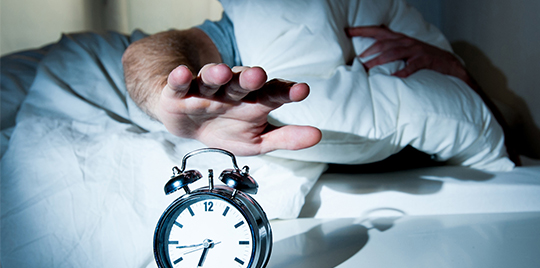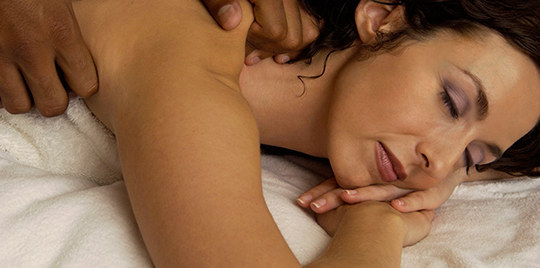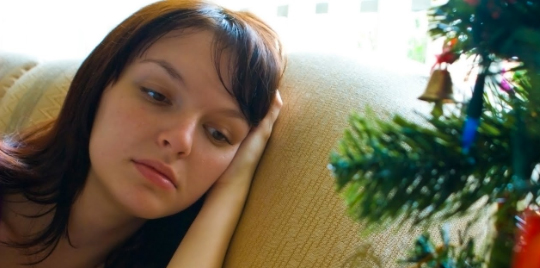

Scott Shorten, MD, Meritas Health Neurology
With the return of Daylight Saving Time, many people are searching for that lost hour of sleep and fumbling for that extra jolt of Joe. If you’re struggling with the time change, Scott Shorten, MD, with Meritas Health Neurology, suggests these tips for an easier transition.
Eat Lightly at Night
Indigestion from spicy or fatty food or having too much food in your stomach can cause insomnia. If you get hungry, have a snack of easy-to-digest food such as carbohydrates or dairy. Also, avoid too much liquid before bed so that you don’t have to wake up to go to the toilet.
Avoid Stimulating Substances
Alcohol and caffeine (found in coffee, tea, chocolate, and some pain relievers) can interfere with sleep. If you have trouble sleeping, avoid alcohol and caffeine for 4 to 6 hours before bedtime. Smokers should also avoid tobacco, another stimulant, too close to bedtime.
Relax Before Bed
Turn down the lights, and turn off the electronics at least one hour before going to bed. Stress and overstimulation can make it hard to fall asleep so avoid intense television programs or movies before bed. Worry boosts production of the stress hormone cortisol, which makes you more alert. Relax with a soothing, warm bath and curl up with a book instead. Avoid napping to close to bedtime. Create a sleep friendly environment with sleep shades, earplugs or a white-noise machine. Keep the temperature around 60-75 degrees to be most comfortable.
Keep Regular Sleep Hours
Go to bed and wake up at the same time each day. A regular sleep schedule, with a consistent bedtime and wake up time, will help keep your body’s natural rhythm on track. If possible, wake up at the same time on the weekends, too, which makes Monday mornings easier to bear. Adults need at least seven hours of sleep each night to maintain good health. If you are a snoozer and like to hit that button a couple of times, try putting the alarm clock out of reach.
Start Your Day With Light
Find some bright light first thing in the morning. Light helps reset the body’s internal clock. As soon as you wake, open the curtains or blinds. Or step outside. Natural light gets your brain going and keeps your body clock on track. If it’s gloomy out, turn on the lights. A light-up alarm clock can help. And it may be less jarring than a noisy alarm. If you struggle with a.m. brain fog or have seasonal affective disorder or depression, try a light box (or sunlamp). It can lift your mood and help you feel more awake.
Eat a Healthy Breakfast Everyday
Eating breakfast kicks starts your metabolism to help you burn more calories throughout the day, increase energy level and may help curb appetite throughout the day. Trying to include at least 3 foods groups is one of the best things you can do for your body.
Quiz: Is It Fatigue or Something Else?
Benefits to DST
You Can Fit in Exercise After Work
People are more likely to do something active outdoors (and watch less TV) since it’s lighter outside for longer. One study found that people burn about 10% more calories during daylight saving time. Consider a class with us.
People With SAD May Benefit
The switch to daylight saving time may help people who have seasonal affective disorder, or SAD, a type of depression that corresponds with the changing of the seasons, and symptoms worsen with the lack of sunlight in the fall, while the longer hours of light in the spring and summer can help lower symptoms of depression, research suggests.
Are You Getting Enough?
You’re Battling Breakouts
If you’re not getting good sleep, your skin may soon show it. Some studies have found a link between a lack of ZZZs and acne, perhaps related to how sleep controls hormones in your body.
Your Eyes Don’t Look Good
Redness, puffiness, dark circles, and bags — all signs that you’re not getting enough shut-eye, along with wrinkles, lines, swelling, and droopiness. Why? It may be that your body misses out on the hormone control and tissue repair that happens in deep sleep stages.
You Gain Weight
When you get a good night’s rest, your body can properly control the hormones that affect how hungry you feel. Without them, you may feel the urge to eat more than you need, which can make you gain weight. A sleep-deprived brain is more likely to crave unhealthy snacks and meals.
You Feel Moody or Depressed
Irritability is a big sign of poor sleep as well as being more stressed, angry, and mentally exhausted. Depression and poor sleep are also closely related. Worse, they’re circular — depression can lead to poor sleep, and the reverse can happen, too.
Focus and Memory Feel Dim
Even a little less sleep — losing just 2 hours if you usually snooze 8 hours a night — can make you groggy and affect concentration and memory. This may make you less skilled at work — or worse, behind the wheel of your car. More than one-third of people admit dozing off while driving.
Mornings Feel Crummy
Waking up with a sore throat, dry mouth, or headache could point to a medical reason you’re sleeping poorly — sleep apnea, snoring, or acid reflux, for example. If you notice symptoms over and over, you may benefit from a sleep health doctor. They can figure out if medication or other treatment would help you.
Be sure to include regular exercise in your daily routine, especially workouts that get your heart pumping. It may promote deeper sleep. A good night’s sleep repairs the body and mind, which helps you function at your best.



